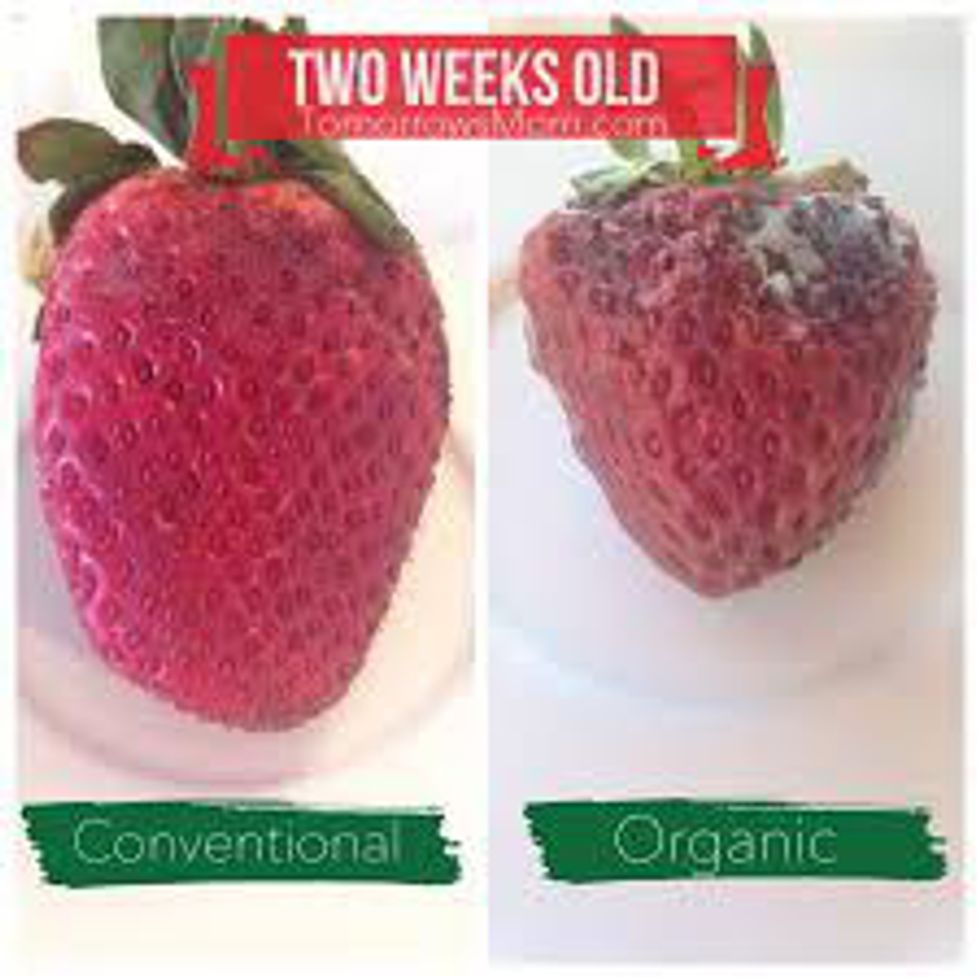Organic foods - everyone talks about them, but does anyone know what they really mean when they say something is "organic"? Below, I break down the definition and what it means to eat something organic or not.
What does organic mean?
Organic products are grown without pesticides, synthetic fertilizers, sewage sludge, genetically modified organisms, or ionizing radiation.
Even if you're on a budget, you need to buy organic.
What foods do I need to eat organic?
- Apples: They are the highest ranking of pesticides.
- Dairy: Organic dairy means that cows did not receive any antibiotics or growth hormones and they consumed 100 percent organic fed.
- Blueberries: Blueberries usually carries more than 50 different pesticides.
- Celery: If you can’t find organic celery, buy asparagus instead. Celery usually carries 64 different types of pesticides.
- Cherry tomatoes: Cherry tomatoes usually carry up to 69 different pesticides.
- Corn: You can find corn-based sweeteners, oils, and starches that you can find in processed food.
- Cucumbers: If you don’t go organic, peel the cucumber and remove the skin. There is usually 86 different types of pesticides.
- Grapes: Usually are 15 different types of pesticide residues.
- Hot peppers: Usually contains 75 pesticide residues, including known carcinogens and neurotoxins.
- Greens like lettuce, green collards, spinach, and kale: Hard to rinse off all the pesticides.
- Meat: Usually pesticides found in cows, chicken, turkey and other animals comes from their feed which is grown using fertilizers and herbicides.
- Nectarines: Usually contains 33 different pesticides were found on nectarines.
- Peaches: Usually contains 13 different pesticide residues.
- Potatoes: One of the dirtiest, the average potato has more pesticides by weight than any other type of produce.
- Snap peas: Have more than 70 different pesticides compared to domestic.
- Soy: 94 percent of soybeans sold in United States percentage of genetically-modified.
- Strawberries: Source of Vitamin C, but contains many pesticides including captan.
- Sweet bell peppers: 500 different pesticides.
What food are safe to buy non-organic?
- Asparagus: Least likely to contain pesticide residue.
- Avocado: Yay! Avocados are the safest fruit to buy non-organic because their outer skin products it from pesticides. Vitamin K, B-6, E and C.
- Cabbage: Contains little pesticide.
- Cantaloupe: High potassium, which can help decrease blood pressure.
- Carrot: They have pesticide residue on the surface, easy to remove when you peel it off.
- Cauliflower: With very low or little discernible pesticide residue.
- Eggplant: Pesticides don’t stay on the skin. It is safe to eat.
- Grapefruit: Pesticides can't get through the thick peel of grapefruit.
- Kiwi: Pesticides are rarely used on kiwi.
- Onion: Lower pesticide residue than other conventionally-grown produce.
- Mango: Pesticides can't get past the thick peel of the mango.
- Papaya: One of the foods that is lowest in pesticide residue.
- Pineapple: Has thick skin that protects the edible fruit inside from pesticides.
- Sweet corn: Low pesticide residue.
- Sweet peas: Contains little pesticide residue.
- Sweet potato: Have very little pesticide residue.
- Watermelon: Pesticides can't get to the inner flesh.





















